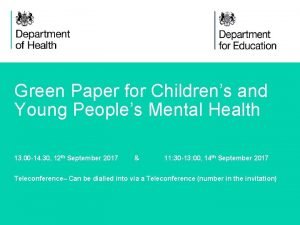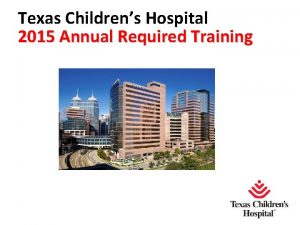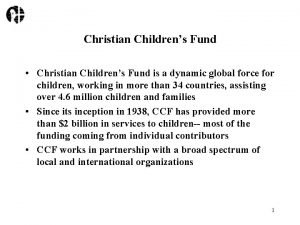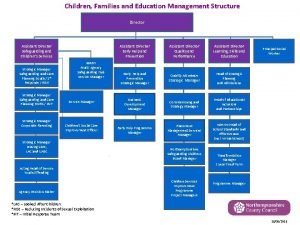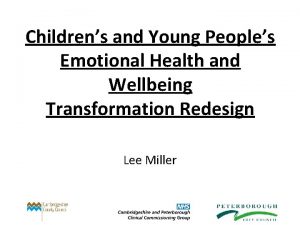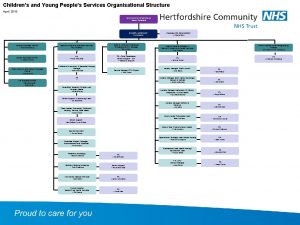Green Paper for Childrens and Young Peoples Mental






- Slides: 6

Green Paper for Children’s and Young People’s Mental Health 13. 00 -14. 30, 12 th September 2017 & 11: 30 -13: 00, 14 th September 2017 Teleconference– Can be dialled into via a Teleconference (number in the invitation) 1

The Green Paper aims to build on Future in Mind achieve a further step change in support for young people’s mental health Background The Green Paper was announced by the Prime Minister in January 2017, and the Government’s commitment to it was restated in their election manifesto. The Green Paper aims to look at the role both health and education can play in supporting all young people, and those with emerging mental health problems, and how they fit into the wider landscape of support for young people. It will take the analysis set out in “Future in Mind”, and rather than restating the nature of the issues, aims to identify some specific ways in which we can improve that support. Two key themes: Preventing mental illness: we are thinking about both whole school approaches, which raise awareness and build staff and young people’s ability to build good mental health and identify early signs of problems; and earlier intervention for young people with emerging problems. We also want to protecting young people online, maximising the positives and minimising the negatives of the internet. Right treatment in the right place at the right time: this means easier access to NHS mental health services for those who need it, and better access to services outside the NHS, including in schools. It also means better joint working at local level. 2

The Conservative manifesto contained a number of commitments for children’s mental health 3 • We will introduce mental health first aid training for teachers in every primary and secondary school by the end of the Parliament • We will ensure that every school has a single point of contact with mental health services • Every child will learn about mental wellbeing and the mental health risks of internet harms in the curriculum • We will reform Children and Yong People’s Mental Health Services (CYPMHS) so that every child with a serious condition is seen within an appropriate timeframe • No child [will have] to leave their local area…to receive normal treatment

Questions for discussion on preventing mental ill-health 1. What commitments would schools and colleges want to see in relation to mental health and wellbeing, building upon existing changes ? In particular: • • 2. Who are the other important stakeholders in prevention and building good wellbeing, what sort of commitments could be made through local authority public health and wider services? • • • 4 What responsibilities could a school lead for mental health have? Leadership and establishing ’whole school approaches’ – how do we build this support into career pathways? How do we reach parents and carers effectively and directly? What role can/should schools play reaching families? How do we promote other effective activities by young people out of school?

Questions for discussion on the right treatment in the right place at the right time 1. 5 How do we establish an effective first response for students in schools and colleges, with routes into specialist provision where needed, and ongoing support through treatment and beyond? • Who should be involved, and how do we ensure the right support is provided at every stage? • How do we properly manage staff who support children and young people who need support? How do we balance the different needs of schools and colleges, local authority services, and the need for quality assurance/clinical supervision of some interventions.

Contacts Michelle Haywood, first point of contact for all queries after the webinars: michelle. haywood@dh. gsi. gov. uk 6
